Decoding AI: The 2023 AI Index Reveals Crucial Trends with Engaging Infographics
Demystifying the AI Revolution: Exploring the Multifaceted World of Artificial Intelligence Through Data-Driven Graphics and Insights
The 2023 AI Index has been released, offering a comprehensive overview of the artificial intelligence landscape, including technical milestones, ethical progress, education and policy trends, as well as economic implications, R&D, and employment opportunities. Spearheaded by the AI Index Steering Committee at the Stanford Institute for Human-Centered Artificial Intelligence (HAI), this independent initiative brings together interdisciplinary expertise from academia and industry to monitor, synthesise, and present AI-related data. This vital resource empowers decision-makers to responsibly and ethically drive AI advancements while prioritising human-centered considerations.
- LLMs are rapidly growing in size and cost, with models like PaLM reaching 540 billion parameters and $8 million in training costs.
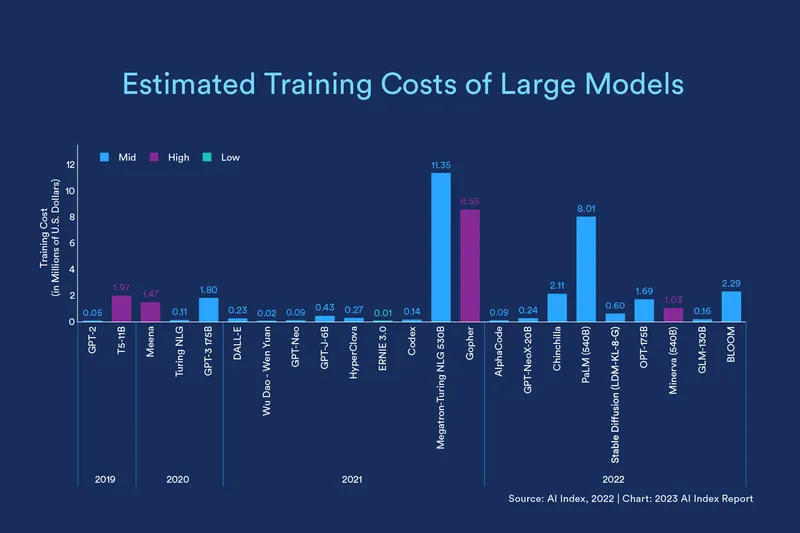
- As AI tools consistently outperform benchmarks, new and more challenging tests are required to gauge their capabilities.
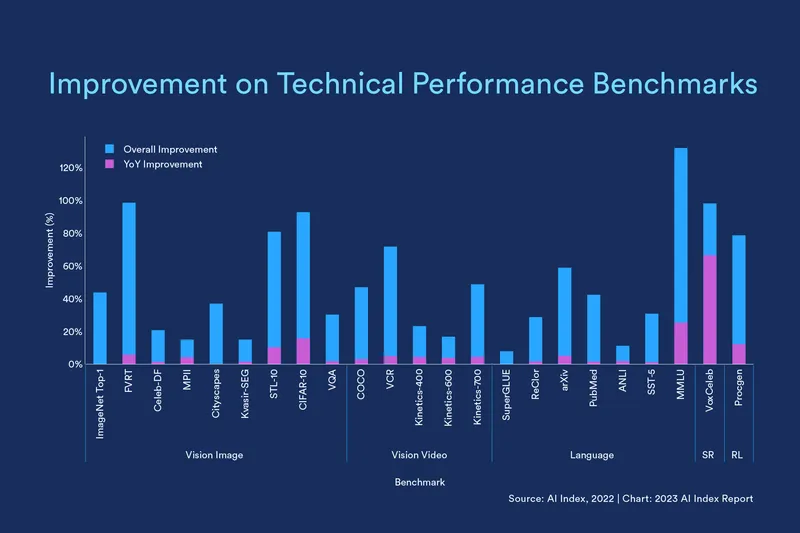
- Large AI models, like GPT-3, have high environmental costs due to their vast parameter sizes, data center efficiency, and power consumption.
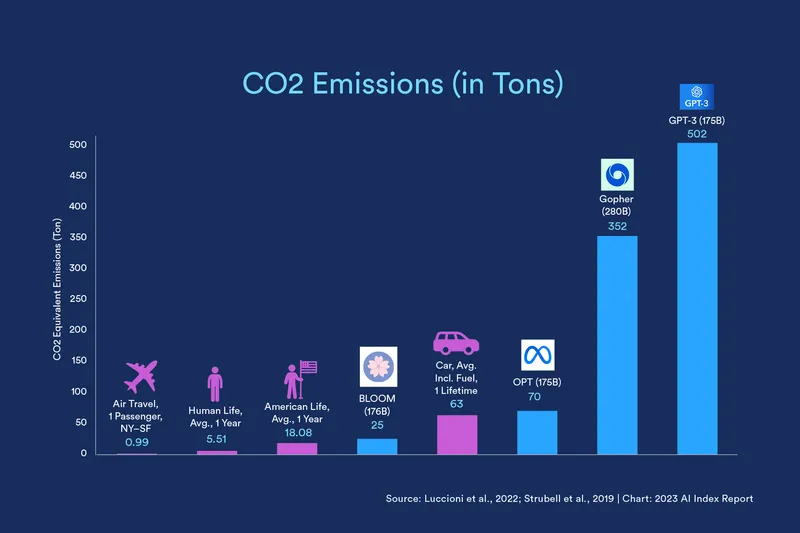
- AI-related incidents have increased significantly due to wider adoption and misuse awareness, including deepfakes and surveillance technology.
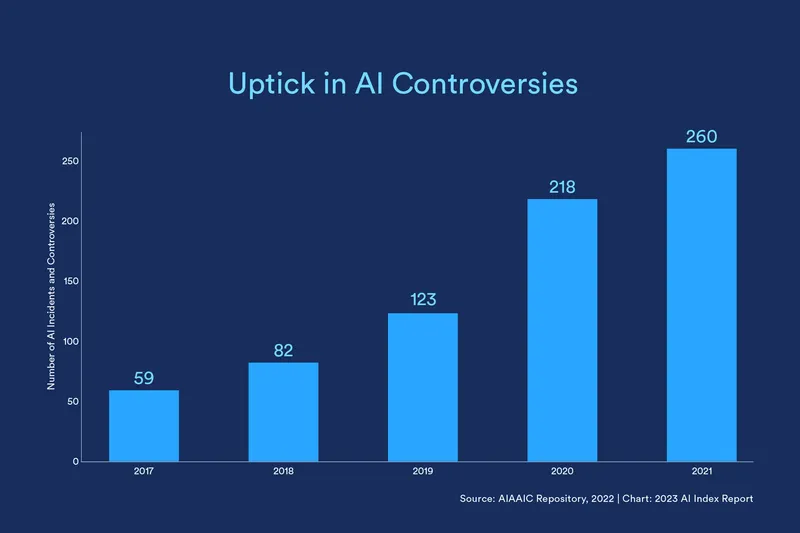
- AI ethics research has surged, as seen in the significant increase in FAccT conference submissions and industry contributions.
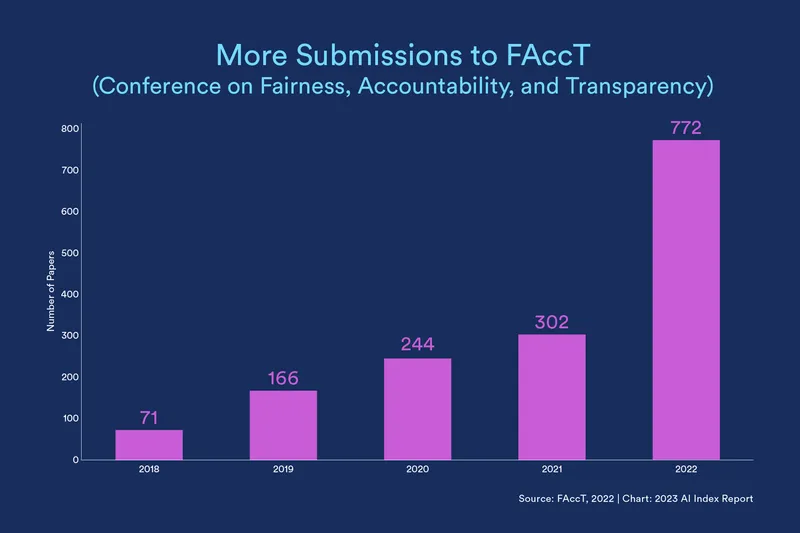
- AI job demand has risen across sectors, with California leading in job postings.
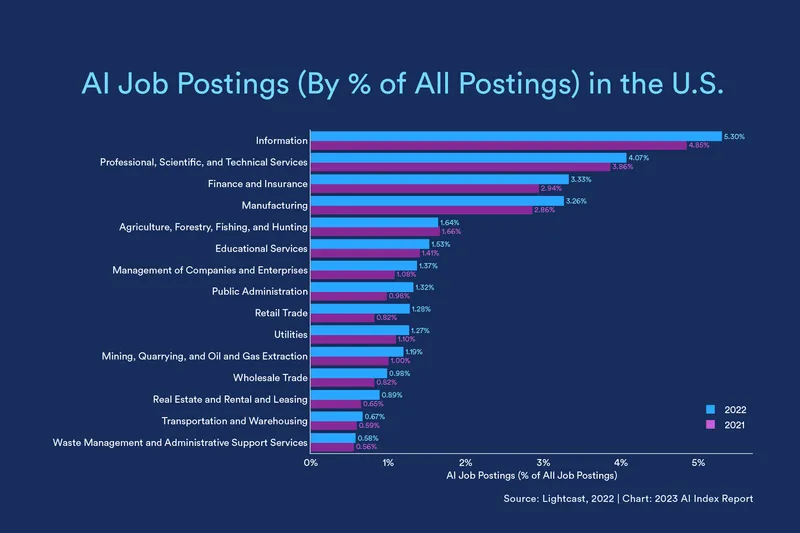
- Corporate investment in AI dipped from its 2021 peak, but still grew 13-fold in the past decade, including Microsoft's $19.7 billion acquisition of Nuance Communications.
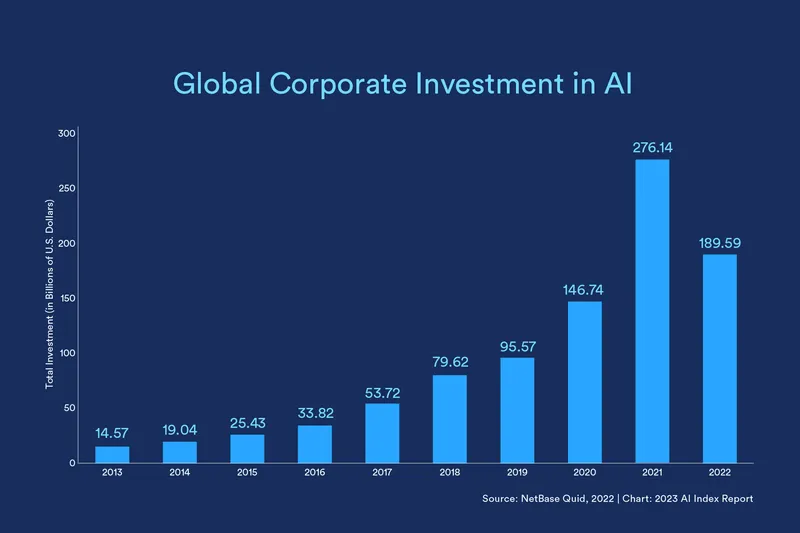
- China leads in robot integration, accounting for 51.8% of all industrial robotic installations worldwide.
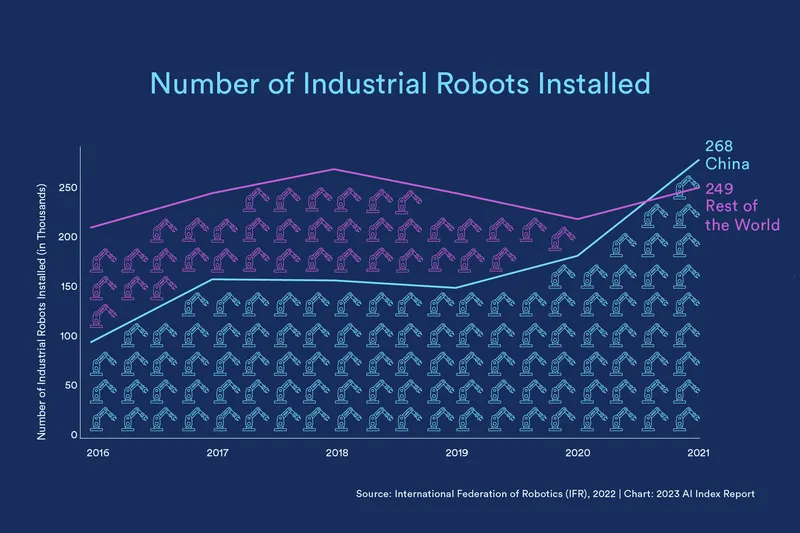
- Most new AI PhDs prefer industry positions, with only 0.7% joining government roles.
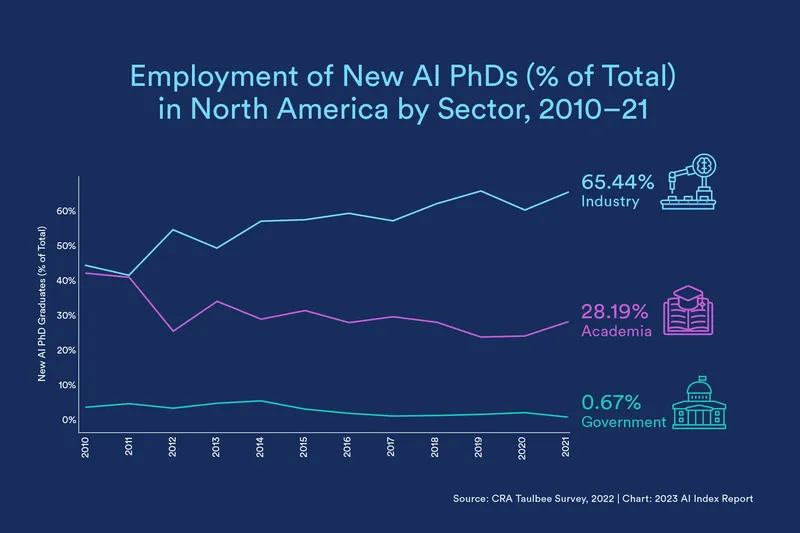
- In the past year, 127 countries enacted 37 AI-related laws, with the US leading in AI legislation.
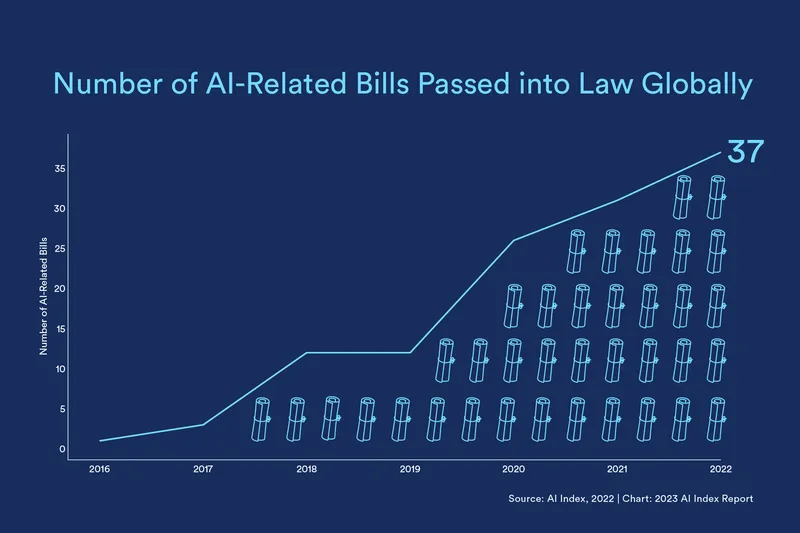
- The US increased AI research funding, allocating $1.7 billion in 2022, up 13% from the previous year.
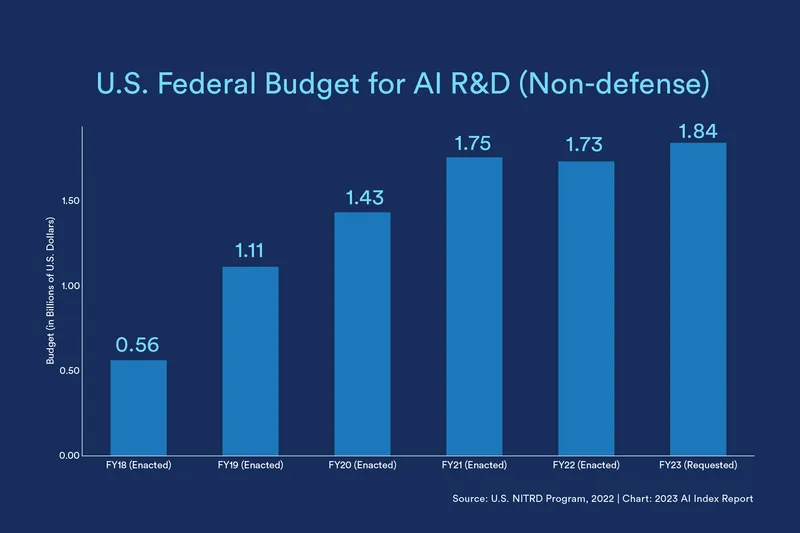
- More women are earning CS bachelor's degrees, reaching 22.3% in recent years.
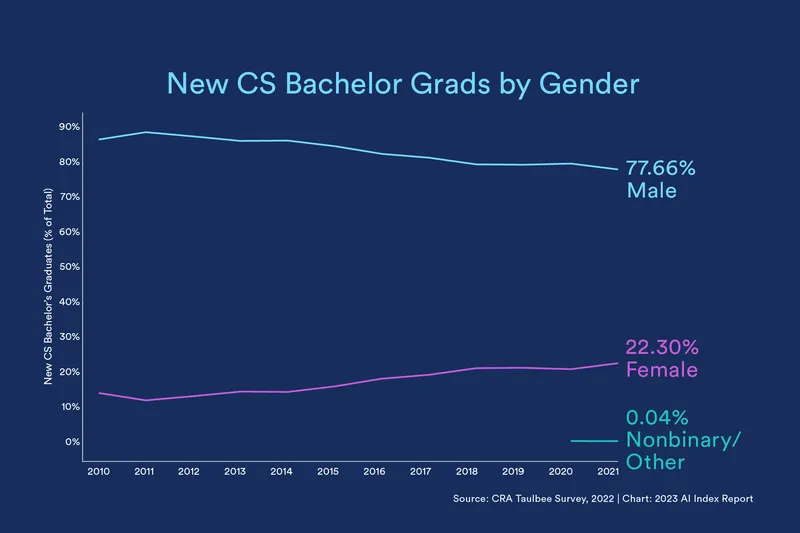
- Ethnic diversity among CS graduates is increasing, with a growing proportion of Asian, Hispanic, and multiracial students.
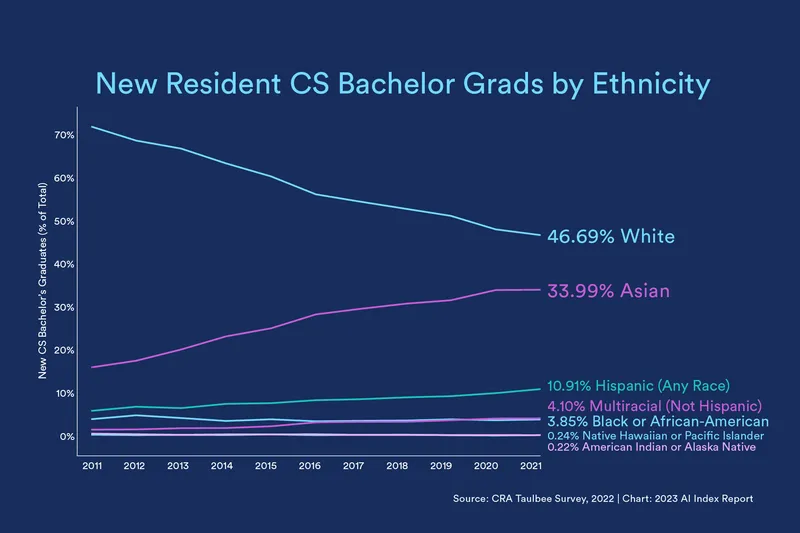
- The number of female CS, CE, and information faculty in North American universities is rising, reaching 30.2%, up 8.5% since 2015.
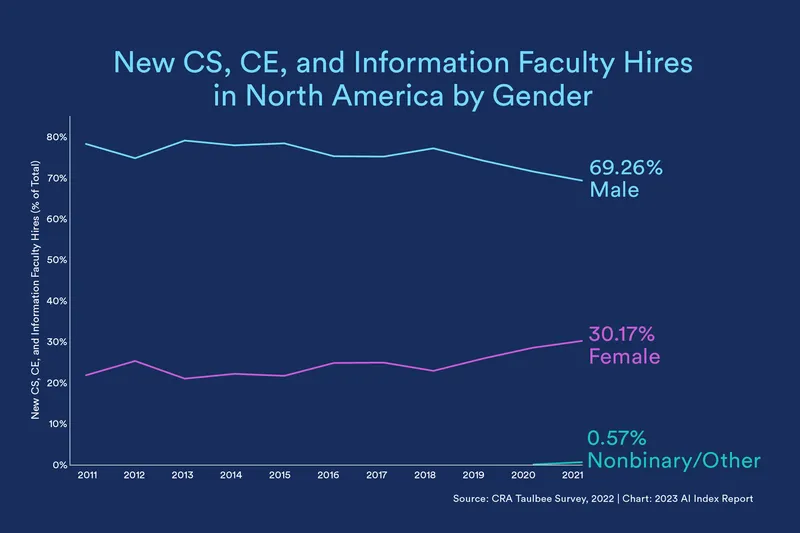
As we delve into the intricacies of the AI landscape, the 2023 AI Index serves as a valuable resource, offering a holistic view of the field's latest advancements, challenges, and opportunities. The detailed infographics and insights provided help us better understand the intersections between technical achievements, ethical considerations, education, policy, and the economy. By staying informed and leveraging this comprehensive analysis, we can collectively work towards a future where AI is developed and implemented responsibly, with the wellbeing of humanity at the forefront.
This article has been developed using information and insights from the 2023 AI Index report, with charts incorporated from the report to enhance understanding.







